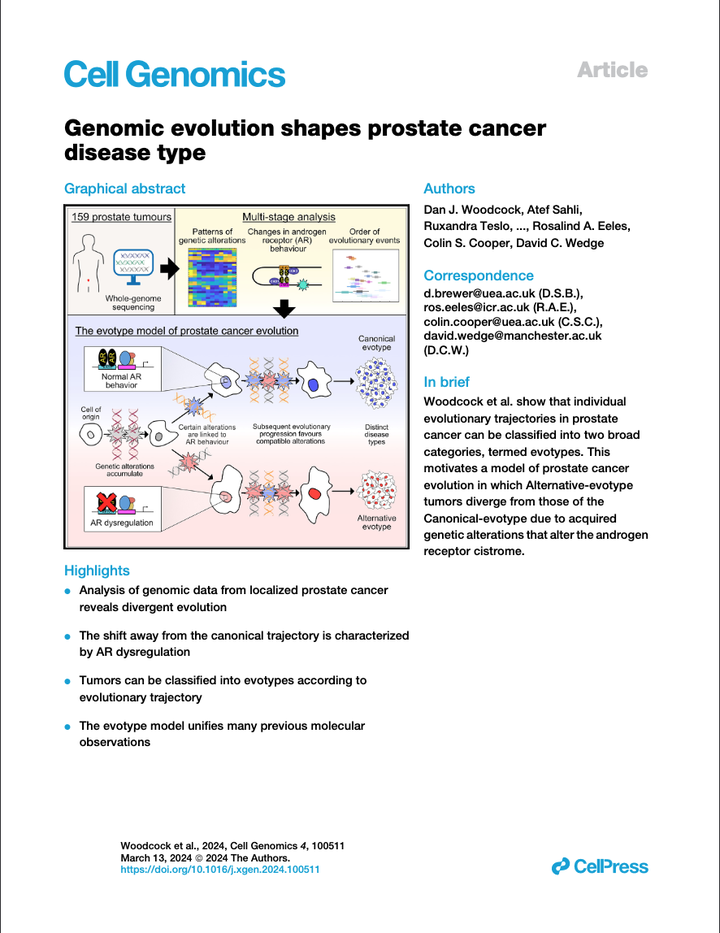Evolutionary Subtypes of Prostate Cancer

For the last few years, we have been analysing Whole Genome Sequencing data from prostate cancers of men in the UK, as members of the UK ICGC group. One of the aspects of prostate cancer that we are most interested in is how they change over time, so we are delighted that the journal Cell Genomics last week published our finding that prostate cancer develops in one of two different ways.
Initially we carried out three separate analyses: clustering tumours according to the mutations and copy number alterations occurring in their genomes; grouping tumours according to whether they were enriched or depleted for structural variation close to AR binding sites; and separating tumours based on the sequence of events causing tumour formation and progression. To our surprise, we found that the 3 independent methods identified the same set of tumours, so we combined the 3 methods into one classifier, which allowed us to assign each tumour to one or another evolutionary subtype, or ‘evotype’. Our evotypes are clinically relevant, as one of the evotypes (dubbed the ‘Alternative’ evotype) is much more aggressive than the other evotype (dubbed the ‘Canonical’ evotype). By identifying those tumours that are more likely to become aggressive and spread to other organs, we hope to inform clinical decision making when deciding which cancers require more aggressive treatment, while sparing patients with more benign tumours from unnecessary treatment.
Our paper is already available online and will be published in the next issue of Cell Genomics on 13th March 2024. You can also read more about our study at The Guardian and other media outlets.
What’s next? The data from the UK has been combined with data from 8 other countries to make a combined dataset from almost 2000 cancers and we are analysing these data through the Pan Prostate Cancer Group international consortium. Look out for our study of evolution in this enlarged set of prostate cancers. We are also investigating evotypes of other cancer types, including breast, oesophageal and gastric cancers.